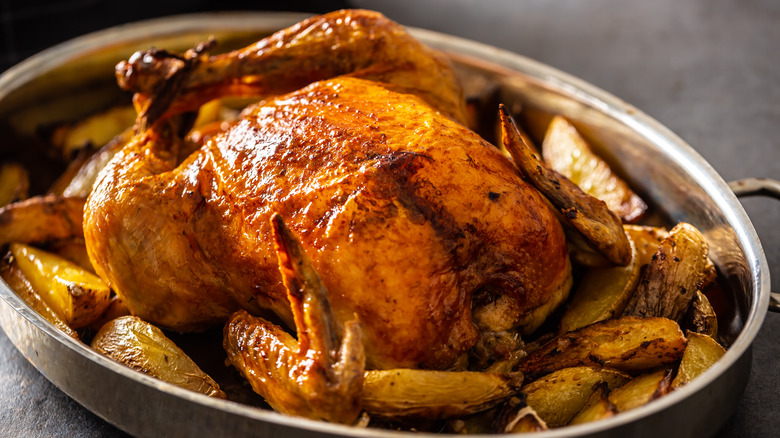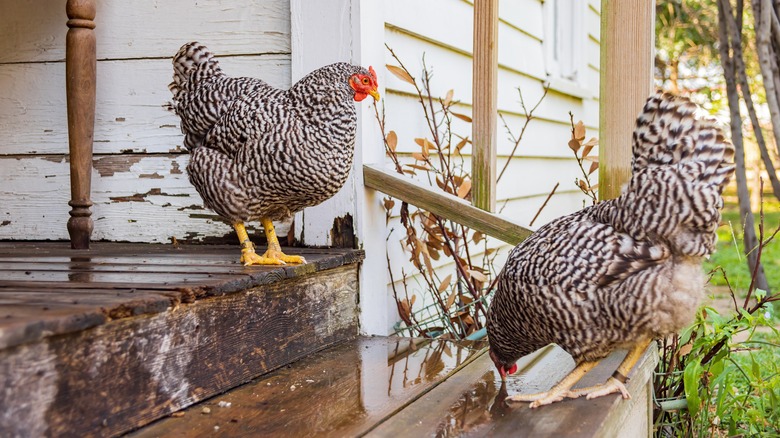Heritage Vs. Commercial Chicken: What's The Difference?
Everyone has probably been told at some point in their life not to be reticent about trying new meat because it "tastes like chicken." While The Herald notes that this could be because a lot of animals, including other birds, reptiles, and amphibians, share common ancestors. This raises the somewhat disturbing question: Did dinosaurs taste like chicken? It does feel like an oversimplification, especially when chicken doesn't necessarily always "taste like chicken."
It's true — chicken does not always taste the way we hope it will, and this is likely due to modern farming practices. According to The Counter, the chicken we regularly purchase in grocery stores and fast food restaurants comes from birds that are specifically bred for efficiency. The birds are genetically engineered to mature quickly — in about six to seven weeks — and do so in small cages. This allows meat producers to supply large quantities of relatively cheap chicken to a populace that demands it — Comfy Living estimates that U.S. consumers eat 8 billion chickens each year! The drawback is that the meat they are producing may not be as good as the chicken people ate in previous generations because the birds don't get the opportunity to develop their muscle tissue. The Counter surveyed a three-person panel, and while the judges noticed no difference in flavor, the meat from birds that were able to exercise was juicier and more tender.
The beauty of heritage chickens
Enter heritage chickens. Unlike commercially-bred chickens, heritage chickens are specific breeds of chickens that must be: hatched from industry-regulated eggs, are allowed to mature for at least four months in an open habitat, and breed naturally (per Food & Wine). Since these birds are given more space and time to grow, they develop stronger muscles which make for leaner and more flavorful meat. These chickens also have a more diverse diet, and don't subsist purely on processed feed. They are allowed to forage for grass and insects, which provide them with different nutrients than factory-farmed birds, though Food & Wine notes, this does lead to some subtle variation in how their meat will taste.
Since heritage chickens take longer to raise, they tend to be more expensive. Heritage birds are mostly purchased whole and cost more than most grocery store chickens. Sagan's Meat Locker, an online seller based in Toronto, sells heritage chickens for $8.49 per pound, where whole birds are an average of three pounds. That's quite a jump from Costco's $4.99 rotisserie chickens. Experts, though, say the flavor of heritage chicken is worth it, if you know how to prepare the meat. Modern Farmer suggests that all heritage chickens should be cooked "low and slow" with lots of moisture, since the more muscular meat will need more time to tenderize and cook, and suggests selecting recipes based on the age of the chicken, since older birds take more time.

